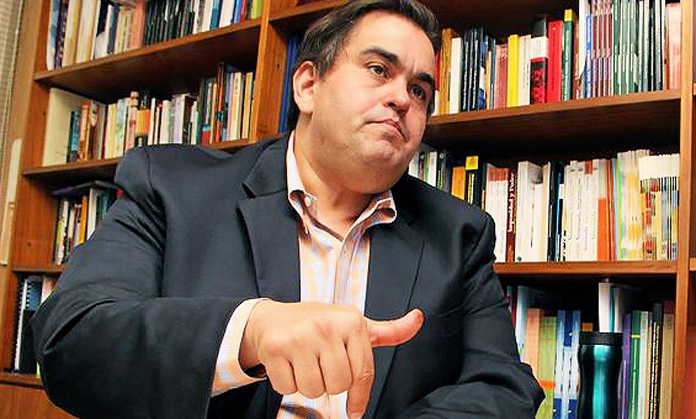There are no reasons for the unreason. Even when the civil association Espacio Público tried to request information according to the T.S.J. Constitutional Chamber guidelines, the Political-Administrative Chamber considered that the effort was not enough and, again, denied this right to the Venezuelan society.
Espacio Público sued the Minister for Correctional Services, Iris Varela, before the T.S.J. Political-Administrative Chamber on 13 August 2015. The reason? It never answered a couple of questions that this NGO sent to his office on 26 January of the same year.
The two questions posed to Varela were the following: “1) Provide a list with the number of dead and wounded in the prisons of the nation from 2001 to 2014; inform in a selective way the number of dead and wounded according to the prisons in each region of the Venezuelan state and according to their gender (…) 2) Provide the number of physicians intended to the country prisons to attend prisoners; indicate in a selective way the number of physicians according to the prisons in each region of the Venezuelan state”.
In accordance with the jurisprudence established by the Constitutional Chamber, “to safeguard the limits of the exercise of the right to information, the petitioner will expressly have to state the reasons for which he requires the information, as well as to justify that what was requested be proportional to its intended use”.
Espacio Público tried to comply with these requirements. In addition to raising their right to exercise social control, the NGO said that it required the information “for reporting on the occasion of the International Covenant on Civil and Political Rights and the International Covenant on Economic, Social and Cultural Rights”.
Despite the arguments of Espacio Público, the Political-Administrative Chamber, in a presentation of the Chamber’s president, María Carolina Ameliach Villarroel, decided to validate the Minister Varela’s silence.
In a judgment given on 10 February 2016, the T.S.J. determined: “although the plaintiff part expressed -generically- the reasons and purposes by which it requested the information -with what, in principle, would fulfill the first requirement demanded by the legally binding criterion established by the Constitutional Chamber previously alluded-, were not incorporated to the tribunal’s orders enough elements that let show how the required information might be useful, or how it might influence the improvement of the effectiveness and efficiency of the correctional institution work”.
The ruling showed –once again- that the right to information is in captivity and its jailer is the country highest tribunal.
Extract of the judgment
«although the plaintiff part expressed -generically- the reasons and purposes by which it requested the information -with what, in principle, would fulfill the first requirement demanded by the legally binding criterion established by the Constitutional Chamber previously alluded-, were not incorporated to the tribunal’s orders enough elements that let show how the required information might be useful, or how it might influence the improvement of the effectiveness and efficiency of the correctional institution work. The plaintiff part does not explain how the reports it makes on the occasion of the International Covenant on Civil and Political Rights and the International Covenant on Economic, Social and Cultural Rights, can influence in the improvement of the country’s prisons, nor in what it means specifically the “social control”, neither who the individuals or persons in charge of carrying it out would be. Likewise, the parameters, indexes or scale that let establish the relationship between efficacy and efficiency of the institution’s work in relation to the requested data, nor the way how supposedly must be disseminated such information are not determined, denoting that there is no correspondence between what was requested with its intended use. Likewise, the plaintiff also argues that another reason for its request is to provide ideas and proposals that let improve the country’s correctional system, not being an obstacle to this that the alluded Ministry grant or not the requested information, given that contributions can be perfectly made and send positive and constructive proposals to this entity for the prison’s improvement, without an answer from the Administration be an essential requirement -with the required details- for it”.
